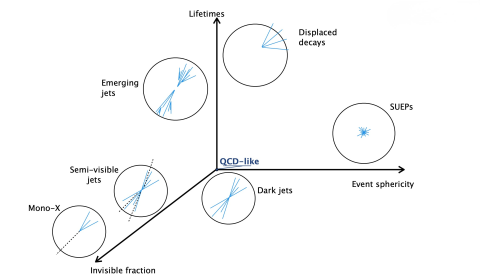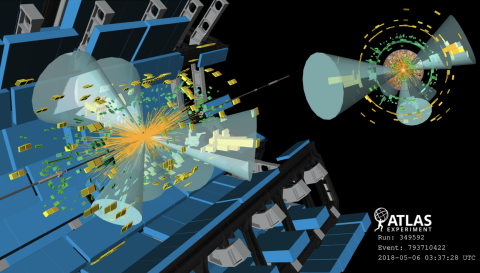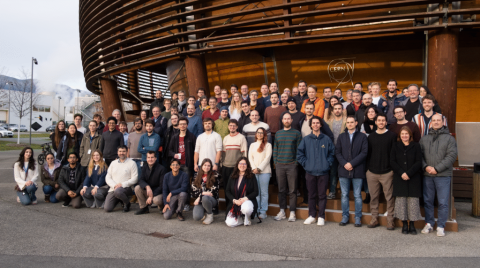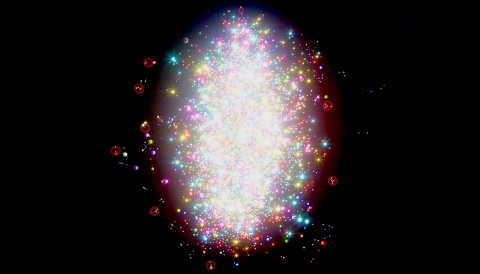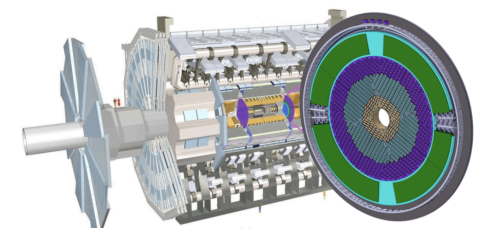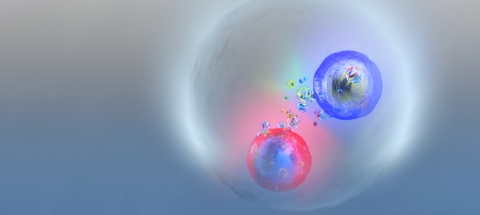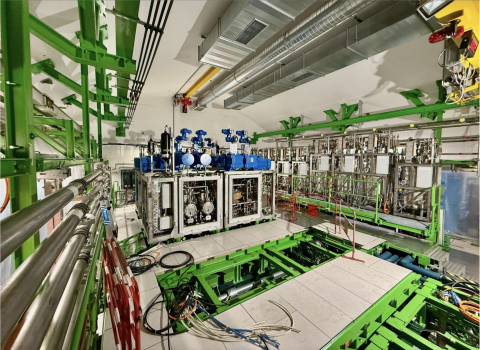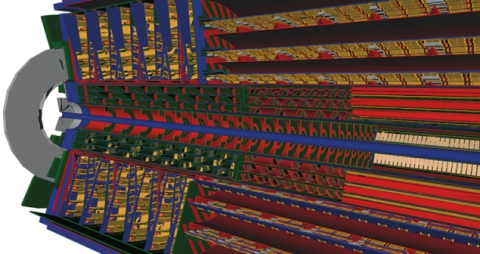ATLAS
Dark Showers at the LHC: from benchmarks to Run-3 readiness
The search for new physics at the LHC increasingly pushes beyond traditional signatures. Among the most intriguing possibilities are dark showers—complex cascades of particles emerging from dark-sector dynamics, capable of producing rich,…
Read moreTriple Higgs Frontiers: Mapping the Higgs self-couplings at the 2025 HHH workshop
More than a decade after the discovery of the Higgs boson, attention is shifting from finding the Higgs to mapping its self-interactions. These self-couplings determine the shape of the Higgs potential, and with it the stability of our vacuum and…
Read moreHighlights from the 2nd NGT Technical Workshop
Participants of the 2nd Next Generation Triggers Technical Workshop at the Globe of Science and Innovation. Picture: Mariana Velho From 19 to 21 November 2025, the Next Generation Triggers (NGT) project held its 2nd Technical Workshop at CERN’s…
Read moreLight ions at the LHC: first results from oxygen–oxygen and neon–neon collisions
This summer, the Large Hadron Collider (LHC) delivered its first-ever collisions between light ions, opening a new chapter in the study of nuclear structure and the quark–gluon plasma (QGP) – the extreme state of matter that existed in the first…
Read moreATLAS explores the quark–gluon plasma with light-ion collisions
In July 2025, ATLAS recorded the first-ever collisions of light ions at the LHC — oxygen–oxygen (O–O) and neon–neon (Ne–Ne) — marking a new phase in the study of strongly interacting matter. These short, intense runs provided a unique opportunity to…
Read moreATLAS explores the quark–gluon plasma with light-ion collisions
In July 2025, ATLAS recorded the first-ever collisions of light ions at the LHC — oxygen–oxygen (O–O) and neon–neon (Ne–Ne) — marking a new phase in the study of strongly interacting matter. These short, intense runs provided a unique opportunity to…
Read moreThe ATLAS High Granularity Timing Detector
Introduction Given the challenging conditions posed by the HL-LHC, ATLAS is currently in the process of constructing a novel precision-timing silicon detector, the High-Granularity Timing Detector (HGTD), which provides a time resolution of 30 to 50…
Read moreBound state, found state - ATLAS ties the knot on top quark pair production at threshold
Physics at the LHC often advances by pushing into regimes once thought unreachable. One such frontier is the precise study of top-anti-top quark pairs (tt̄) near the production threshold, where subtle quantum effects may leave their imprint. A few…
Read moreNext-Generation CO₂ Cooling Systems Powering the Future of ATLAS and CMS
Four CO2 cooling plants and accumulators in the service cavern of CMS in May 2025. (Photo by Jérôme Daguin) During recent shutdown periods, CERN engineers and technicians — in collaboration with the ATLAS and CMS teams — began installing the…
Read moreThe ATLAS Inner Tracker Integration at CERN
Introduction The ATLAS ITk (Inner TracKer) is a new all-silicon tracker that will replace the existing ATLAS Inner Detector (ID) to meet the requirements imposed by the high-radiation and high-hit occupancy environments of the HL-LHC (High-…
Read more
